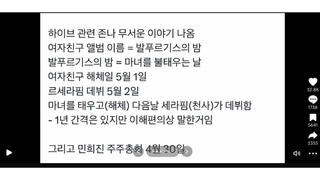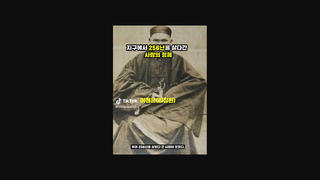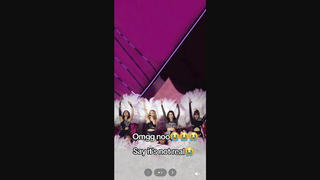Satire Policy | Lead Stories
Just because it's funny doesn't mean it's a joke to everyone
Satire is sometimes considered a problem for fact checkers: "obviously" this or that story is not true, "It is just a joke", "It is only for laughs", "Why bother fact checking that?", "Any reasonable person can see..."
Stop!
This is the internet we are talking about. There are plenty of non-reasonable people around. Or perfectly reasonable people who lack the cultural context to get the joke. Or drunk people. Or kids.
Sometimes jokes need to be fact checked. Not for you, because you are smart and you get the joke. But for the crazy uncle who thinks it is real. Or for the foreign journalist who doesn't know what The Onion is. Or for the people who missed the disclaimer and the hints. Or because the disclaimer and the hints were hidden on purpose.
False or Satire: a serious difference
Labeling something false vs. labeling it satire makes little difference to the reader of an article: at the end they will know the story they just read was not real.
But to Google, Facebook and other social networks these distinctions matter greatly. For example this page about Facebook's Third-Party Fact-Checking Program explains what happens with content labeled as "False" (or "Mixture", or "False Headline") by fact checkers:
First, that content's distribution is reduced. It will appear lower in News Feed, and will be accompanied by Related Articles from fact-checkers. If people try to share the content, they will be notified of the additional reporting. They will also be notified if content they have shared in the past has since been rated by a fact-checker.
Second, in order to more effectively fight false news, we also take action against Pages and domains that share, and domains that repeatedly publish content which is rated "False." Such Pages and domains will see their distribution reduced as the number of offenses increases. Their ability to monetize and advertise will be removed after repeated offenses. Over time, Pages and domains can restore their distribution and ability to monetize and advertise if they stop sharing false news.
Most of these effects do not apply when something is rated "Satire".
What is satire even?
The Oxford Dictionary defines it as:
The use of humour, irony, exaggeration, or ridicule to expose and criticize people's stupidity or vices, particularly in the context of contemporary politics and other topical issues.
While the Cambridge Dictionary says:
a way of criticizing people or ideas in a humorous way, especially in order to make a political point, or a piece of writing that uses this style
Collins Dictionary has several definitions:
Satire is the use of humour or exaggeration in order to show how foolish or wicked some people's behaviour or ideas are.
and
1.
a novel, play, entertainment, etc, in which topical issues, folly, or evil are held up to scorn by means of ridicule and irony
2.
the genre constituted by such works
3.
the use of ridicule, irony, etc, to create such an effect
and
1.
a.
a literary work in which vices, follies, stupidities, abuses, etc. are held up to ridicule and contempt
b.
such literary works collectively, or the art of writing them
2.
the use of ridicule, sarcasm, irony, etc. to expose, attack, or deride vices, follies, etc.
The common thread seem to be that it has to be funny and it has to criticize/expose/ridicule/mock people or ideas.
What do we consider satire?
At Lead Stories we will label untrue stories as satire if they meet following criteria:
a) They are funny
b) They criticize/expose/ridicule/mock people or ideas
c) A reasonable person can tell it is a joke
Of course there are grey areas: not everybody enjoys the same type of humor and the definition of "reasonable" is sometimes quite flexible. Note that we do not require a disclaimer to be present: a funny meme mocking some government policy by poking fun at the supposed effects is a perfectly valid form of satire. But a clear and visible disclaimer can sometimes help us in our decision: if we can see it, so can our hypothetical "reasonable person".
Funny fictional stories that don't actually criticize/expose/ridicule/mock people or ideas can also be labeled as satire if there are clearly visible indicators the story is not real.
When do we fact check satire?
Of course we won't fact check every satirical story that crosses our desk. We will generally only do it if it seems there are enough people believing it is real. We often look at the comments and if there are several that appear to be coming from people taking the story at face value we may opt to fact check it. But if a story is just too ridiculously obvious we usually won't bother.
What do we consider not to be satire?
- Sometimes articles from humor or satire publications are copied by other sites and presented as real. In such cases we will label the copies as "False".
- Some false articles are funny but they aim to deceive a reasonable person into believing they are real through presentation, layout, style... so we label thoses stories "False".
- Often these stories are presented as "offbeat" news: strange crimes, weird accidents, bizarre sex acts, odd behaviour... Presentation can include having "news" in the site name or category, using a journalistic writing style or having a layout that looks like a news website.
- These kinds of stories mostly aren't written to criticize/expose/ridicule/mock real people or ideas so technically they aren't even satire.
- If there is no clearly visible indication a story is fiction we will label it "False" in such cases. And we mean the "clearly" part: it has to be visible without scrolling or clicking by our hypothetical "reasonable person".
- Only having a hidden "satire" or "fauxtire" disclaimer, tag or category in a footer or on a different page on the website or in a tiny font or in an easily overlooked color can be an indicator that deception is going on.
- Some false stories that are funny but technically not satire (because they don't mock/criticize/expose/ridicule people or ideas) can be labeled as satire anyway if they are clearly presented as fiction.
Appeals
If you are a publisher and you feel one of your stories has unfairly been labeled as "False" instead of "Satire" you can send us an email via appeals@leadstories.com.
We are perfectly willing to change our rating when presented with evidence changes have been made to make it clearer some piece of content is fictional. For example if you:
- Changed the header of the site (better description, subtitle indicating everything is fiction...)
- Made a disclaimer visible without the need for clicking or scrolling
- Increased the visibility of satire tags or category indicators
- Added a line to the article saying it is not true
- ...
Don't bother sending us threats or insults: it might temporarily make you feel better but the chance it will convince us to change a rating is vanishingly small.
About us


Lead Stories is a U.S. based fact checking website that is always looking for the latest false, misleading, deceptive or
inaccurate stories, videos or images going viral on the internet.
Spotted something? Let us know!.
Lead Stories is a:
- Verified signatory of the IFCN Code of Principles
- Facebook Third-Party Fact-Checking Partner
- Member of the #CoronavirusFacts Alliance
Follow us on social media
Most Read
Most Recent
-

Fact Check: Image Of Former President Yoon Suk Yeol Crying With First Lady Kim Kun Hee After Impeachment NOT Real
Fact Check
-

Fact Check: Jun Hyun Moo Did Not Visit President Yoon Suk Yeol At The Seoul Detention Center
Fact Check
-
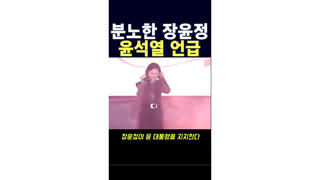
Fact Check: Jang Yoon-jeong Did NOT Say She Supports Yoon Suk-yeol
Fact Check
-

Fact Check: Video Does NOT Show Massive Rally By Supporters Of Impeached President Yoon Suk-Yeol In South Korea
Fact Check
-

Fact Check: Chinese Spies Did NOT Manipulate South Korea's Elections And Get Arrested
Fact Check
-
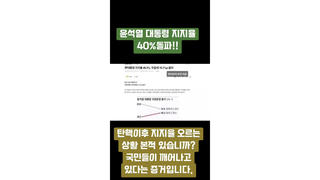
Fact Check: President Yoon Suk Yeol's Approval Rating Did NOT Exceed 40 Percent After Impeachment In 2024
Fact Check
-
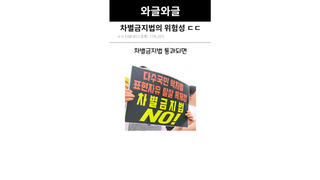
Fact Check: Proposed 'Anti-discrimination Act' Did NOT Include 'Homosexuality Education' Or 'Ladies' Restroom Access For Anyone Who Claims To Be A Woman'
Fact Check

